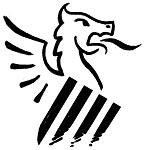Trobat ADN d'indis americans duts a anglaterra des del 1500
Native American DNA found in UK
By Paul Rincon - Science reporter, BBC News - Fridy, 4 May 2007
(Enviat per Cristina Ortuño)
DNA testing has uncovered British descendents of Native Americans brought to the UK centuries ago as slaves, translators or tribal representatives.
Genetic analysis turned up two white British women with a DNA signature characteristic of American Indians.
An Oxford scientist said it was extremely unusual to find these DNA lineages in Britons with no previous knowledge of Native American ancestry.
Indigenous Americans were brought over to the UK as early as the 1500s.
Many were brought over as curiosities; but others travelled here in delegations during the 18th Century to petition the British imperial government over trade or protection from other tribes.
Experts say it is probable that some stayed in Britain and married into local communities.
Doreen Isherwood, 64, from Putney, and Anne Hall, 53, of Huddersfield, only found out about their New World heritage after paying for commercial DNA ancestry tests.
Mrs Isherwood told BBC News: "I was expecting the results to say I belonged to one of the common European tribes, but when I got them back, my first thought was that they were a mistake.
"It rocked me completely. It made think: who am I?"
Ancestral home
The chartered physiotherapist studied for a degree at the University of North Carolina, but had no idea she possessed Native American ancestors. She said she came from a long line of Lancashire cotton weavers.
Mrs Isherwood added that she was "immensely proud" of her newfound heritage, which has renewed a long-standing interest in Native American culture.
Anne Hall, who works as a private educational tutor, commented: "I was thrilled to bits. It was a very pleasant surprise. To have Native American blood is very exotic."
She said she now aimed to investigate her family history in an attempt to track down the source of her rare genetic lineage.
Mrs Isherwood says her American antecedent must have arrived in Britain in the 18th or 17th Centuries. She has traced her maternal ancestors back to 1798 and has found no sign of New World progenitors.
Maternal clans
The tests taken by both women were based on analysis of DNA inside the "powerhouses" of our cells: the mitochondria.
Mitochondrial DNA (mtDNA) is passed down from mother to daughter more or less unchanged; but changes, or mutations, accumulate in the DNA sequence over successive generations.
Scientists can use these changes to classify mtDNAs into broad types (called haplogroups) which, to some extent, reflect a person's geographical origin.
Mrs Isherwood and Mrs Hall possessed haplogroups characteristic of the indigenous people of the Americas, which are referred to as A and C.
"It's very unusual. Most of the people we test belong to one of the European maternal clans," said Professor Bryan Sykes, whose company Oxford Ancestors carried out the tests for Doreen and Anne.
Professor Sykes, also a professor of human genetics at the University of Oxford, said: "There are matches between [Doreen and Anne] and particular Native American tribes, but that doesn't necessarily mean those are the tribes their ancestors came from."
Trickle of immigrants
This month marks the 400th anniversary of Jamestown, the first permanent English-speaking settlement in North America.
Alden Vaughan, a professor emeritus at Columbia University, in New York, has written a book on American Indians in Britain. He said indigenous peoples from the New World began arriving in Britain as early as the sixteenth century.
"It started earlier than Jamestown. A number were brought over through the 1500s, mainly as curiosities," he told BBC News. Others were taken to Britain to learn English and go back to the colonies as translators.
"Sir Walter Raleigh brought back several individuals from the Jamestown area and from the Orinoco valley. Pocahontas went to England in 1616 and died there the next year.
"She was accompanied by several of her tribal associates. Some of them stayed in England for several years. I don't know of any marriages or even relationships between those women and Englishmen, but it is certainly possible.
"Later in the 17th Century, Native American slaves were brought over. I don't know much about them, because all the evidence I have are ads in London newspapers for runaway bond-servants, described as being Indians."
www.HistoCat.cat


0 Comments:
Publica un comentari a l'entrada
<< Home